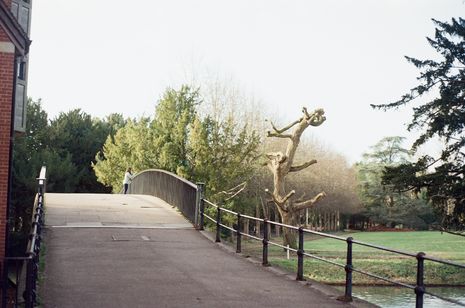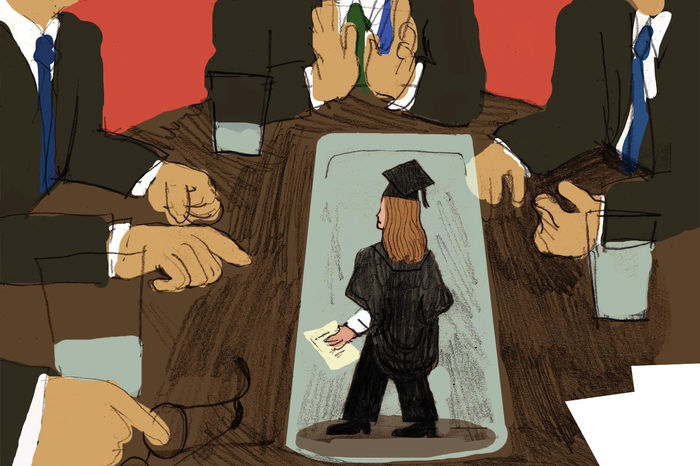What it’s like to be an underage student at Cambridge
How does being underage at Cambridge impact perceptions of maturity, access, and student life?

“Then he started calling me boss baby!” Dara rolls their eyes and takes another sip of tea, still breathless from recounting the impressive range of societies, committees, and academic roles they had become involved in over their first year at Cambridge. Boss baby. We giggle into our cups. But then again, reactions such as these are not unusual for the students who, like Dara and I, are underage.
Students aged seventeen and younger make up a minority so small the University does not keep figures on them. While Cambridge lacks an official policy on underage applicants, the sparse information it does provide seems to hint at a less-than-encouraging stance taken towards students aged 17 and younger. Underage students need to demonstrate “the necessary maturity” needed to navigate Cambridge’s academic and social pressures in their applications.
Beyond these broad guidelines found on the University website, individual colleges may manage underage applications according to differing policies. Helen Harris, a spokesperson from Jesus College, reveals the additional requirement levied on prospective 16-year-old students when coming to college. Interviewees must demonstrate “maturity, personal skills, and realism” in their academic and social attitudes in a third interview with the Admissions Tutor and another nominated member of the College Welfare and Tutorial team. A special kind of resilience, it seems, is needed to cope in an environment where the everyday pressures are supplemented by the “othering” effect of one´s age.
“the person they liked would never like them back, because that would make them a paedophile”
“Being underage fundamentally alters people’s perception of you sometimes”. Dara’s friend had dubbed them “boss baby” after finding out they had come to Cambridge at 16. Now 17, they laugh, then admit that such comments can come across as “slightly condescending”. Dara reveals how unwanted age-related commentary extended into the most intimate aspects of their life. After telling a friend they had a crush on someone, they were confronted with the “assurance that the person they liked would never like them back, because that would make them a paedophile”.
Dara rushes off after our conversation to celebrate their six-month anniversary with the very same person. Comments that implicitly and explicitly question the maturity and life experience of underage students irritate not because they strike a nerve, but because they reveal a divergence between reality and perception. Neither Dara nor the other two students who spoke to me expressed any feelings of difference from their older peers.
“Your actual age is so much less important than your life experiences,” says Toni, another first-year student who turned 17 just before arriving at Cambridge. Like many students who skipped grades early on, their age difference had long since been levelled out by the friendships and experiences they shared growing up. “I feel the same as the people who are 18 and 19 now”. And indeed, for Toni, as for Dara, their age has become little more than a “side note” in the relationships with friends, partners, and peers that flourish irrespective of a date on a birth certificate. “People are more shocked immediately when they find out about my age, and then they just forget about it,” Dara concludes.
“Your actual age is so much less important than your life experiences”
However, age still matters in one crucial way – the legal drinking age. Inseparable from British student culture, the University-wide drinking culture poses a problem that underage students have learned to navigate differently.
Formally, all components of Cambridge’s ritualised drinking: parties in Freshers Week, Wednesday Revs, Spoons, wine at formals, and May Balls, are barred to underage students. Dara recalls what seems like an informal rite of passage for many younger students: the Spoon´s rejection. Their walk home, alone and in a despair no Spoons could ever merit, triggered “a bit of a crisis”. “I asked myself if I was fundamentally different from everyone else: Is this going to ruin my uni experience forever?”
Nevertheless, upon developing strong friendships and vast social networks, they can emphatically negate that question: “It’s so easy here to find friends who are similar to you, like if you don’t want to drink, you can find friends who also don’t drink, like I did”.
“During freshers’ week, I borrowed my mate’s ID so I didn’t really miss out on anything”
Tom, a second-year student who turned 18 just after Michaelmas of his first year, reveals the remedies available for students less keen on abstention. “During freshers’ week, I borrowed my mate’s ID so I didn’t really miss out on anything,” he tells me. Even after this stunt was exposed and the ID was lost, there were still Pres and more lenient bars to go to: “at college, no one will ID you.”
When asked about support networks, Dara, Toni, and Tom express satisfaction at the College support provided by staff, from their Director of Studies to the porters. Even so, Toni wishes the University and the College had provided more specific information regarding the practical restrictions of being underage before their arrival. Having struggled to open up a bank account as an underage and international student and finding out about the 18+ policy of the rowing club only after joining, they want “the University and College explicitly telling you what you can and cannot do”.
These experiences of being underage “wouldn’t have impacted my decision or pushed me to take a gap year at all,” Toni emphasises. Indeed, despite the restrictions and occasionally unwarranted reactions, all three students look back on their first or second year at Cambridge with satisfaction. Tom is still close friends with the people he met in his first term. Dara enjoys the relationships with their partner and friends, for whom their age no longer plays any role. To these students, age here “literally shouldn´t and doesn’t matter”.
 Comment / College rivalry should not become college snobbery30 January 2026
Comment / College rivalry should not become college snobbery30 January 2026 Features / Are you more yourself at Cambridge or away from it? 27 January 2026
Features / Are you more yourself at Cambridge or away from it? 27 January 2026 Science / Meet the Cambridge physicist who advocates for the humanities30 January 2026
Science / Meet the Cambridge physicist who advocates for the humanities30 January 2026 News / Cambridge study to identify premature babies needing extra educational support before school29 January 2026
News / Cambridge study to identify premature babies needing extra educational support before school29 January 2026 News / Vigil held for tenth anniversary of PhD student’s death28 January 2026
News / Vigil held for tenth anniversary of PhD student’s death28 January 2026










